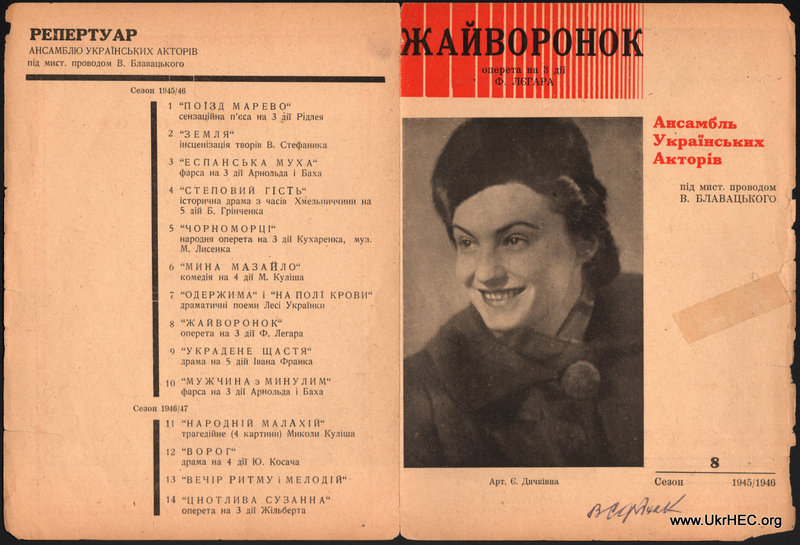War and Displacement
The takover of Western Ukraine by the Soviets in 1939 as part of the Molotov-Ribbentrop Pact completely changed the cultural life of L'viv. For example, the Tobilevych and the Zahrava theaters were forcibly united to form the Lesia Ukrainka Theater. However, residents of the city would soon have much more to worry about than that.
After surviving the Nazi occupation, the Serdiuks joined thousands of others fleeing the advancing Soviet army, and ended up in DP camps.
Notwithstanding the deprivations of the camps, Volodymyr Blavats'kyi (the former director of the Zahrava Theater) formed a new theater company (the "Ensemble of Ukrainian Actors") that produced a remarkably ambitious series of plays and musical theater works. These included translations of Western European works, such as "Where the Lark Sings" by Franz Lehár, "The Ghost Train" by Arnold Ridley, and farces by the popular German comedic playwrights Arnold and Bach. The majority of the productions, however, were of Ukrainian works by Franko, Lesia Ukrainka, Kulish, and Hrinchenko.
